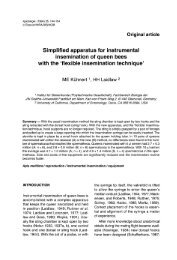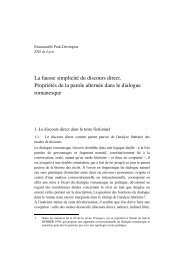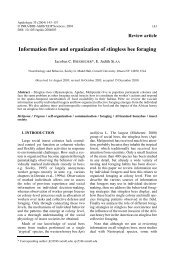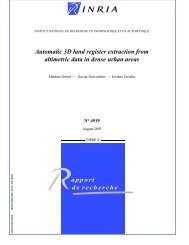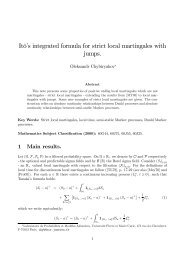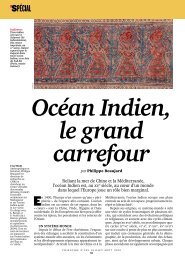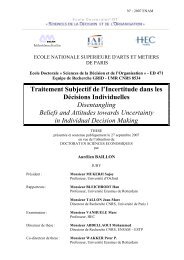Itineraries of Palestinian refugees: Kinship as resource in emigration.
Itineraries of Palestinian refugees: Kinship as resource in emigration.
Itineraries of Palestinian refugees: Kinship as resource in emigration.
You also want an ePaper? Increase the reach of your titles
YUMPU automatically turns print PDFs into web optimized ePapers that Google loves.
halshs-00342285, version 1 - 28 Nov 2008<br />
and lives abroad. The only guarantee available to creditors is the membership <strong>of</strong> the<br />
migrant <strong>in</strong> a family or community network strongly structured and identified. Arriv<strong>in</strong>g at<br />
his dest<strong>in</strong>ation, the migrant refunds his debt by send<strong>in</strong>g money back to his creditors.<br />
Generally, the money is sent with a relative or a friend visit<strong>in</strong>g from Lebanon. The<br />
importance <strong>of</strong> the relationship between the send<strong>in</strong>g community and the expatriate group<br />
is <strong>of</strong> prime importance <strong>in</strong> the operation <strong>of</strong> this system <strong>of</strong> f<strong>in</strong>ancial solidarity. The<br />
mechanism is very efficient when the b<strong>as</strong>is <strong>of</strong> the network is family. The broader the<br />
b<strong>as</strong>is is, the less the effectiveness. The c<strong>as</strong>e most commonly observed is the follow<strong>in</strong>g:<br />
the father leaves to work <strong>in</strong> Germany, then, when his <strong>in</strong>come allows, his elder son comes,<br />
followed by the other sons (or brothers), before the rest <strong>of</strong> the family comes, i.e. the<br />
spouse (or mother) and daughters (or sisters).<br />
In a context <strong>of</strong> high restrictive immigration and <strong>as</strong>ylum policies <strong>in</strong> the dest<strong>in</strong>ation<br />
countries, the cost <strong>of</strong> migration is <strong>in</strong>cre<strong>as</strong><strong>in</strong>g and the opportunities <strong>of</strong>fered to new<br />
immigrants to cross borders are very limited, especially because immigration and <strong>as</strong>ylum<br />
laws are chang<strong>in</strong>g rapidly <strong>in</strong> European countries. Collect<strong>in</strong>g money and hav<strong>in</strong>g access to<br />
<strong>in</strong>formation are the two key problems for <strong>Palest<strong>in</strong>ian</strong> <strong>refugees</strong>. I have observed that the<br />
most efficient networks are b<strong>as</strong>ed on the nuclear family’s ability to collect funds <strong>as</strong> well<br />
<strong>as</strong> to obta<strong>in</strong> proper <strong>in</strong>formation on the dest<strong>in</strong>ation countries, <strong>in</strong> c<strong>as</strong>e <strong>of</strong> <strong>emigration</strong><br />
towards Europe. The nuclear family <strong>of</strong>ten gives concrete help, where<strong>as</strong> extended families<br />
give a more diffuse help. The only situation <strong>in</strong> which the extended family and village<br />
solidarity play the major role is when marriage and family reunification is used to<br />
emigrate.<br />
IV. Conclusion.<br />
Even if <strong>Palest<strong>in</strong>ian</strong>s <strong>in</strong> Lebanon are <strong>refugees</strong>, their <strong>emigration</strong> should not be only<br />
analyzed through the forced migration schema. <strong>Palest<strong>in</strong>ian</strong> migration responds to a<br />
multiplicity <strong>of</strong> factors that are l<strong>in</strong>ked to their refugee status – and can thus be considered<br />
forced – but also to a wide range <strong>of</strong> economic and social factors related to the departure<br />
17



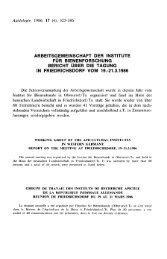
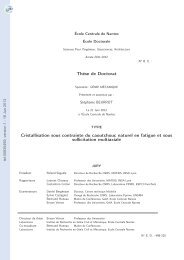
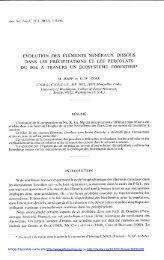
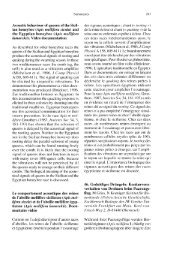
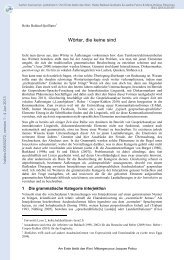
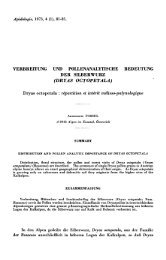
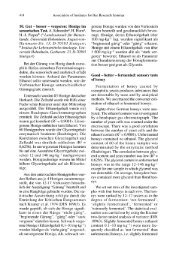
![4 C]-Polyethylenglykol bestimmt, der - HAL - INRIA](https://img.yumpu.com/22454280/1/177x260/4-c-polyethylenglykol-bestimmt-der-hal-inria.jpg?quality=85)
